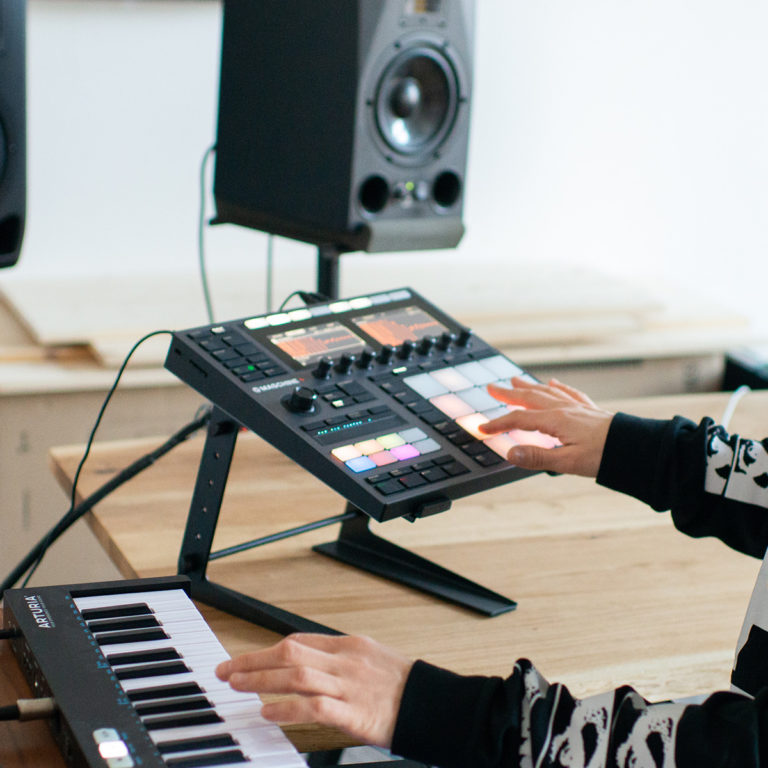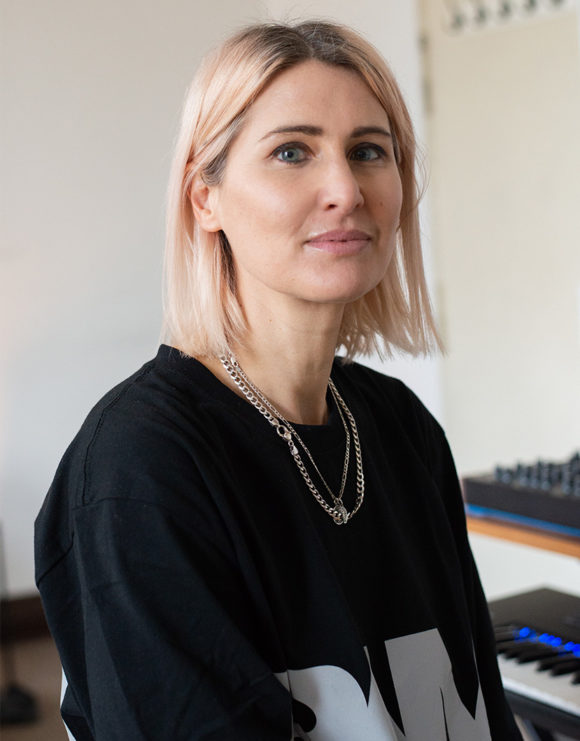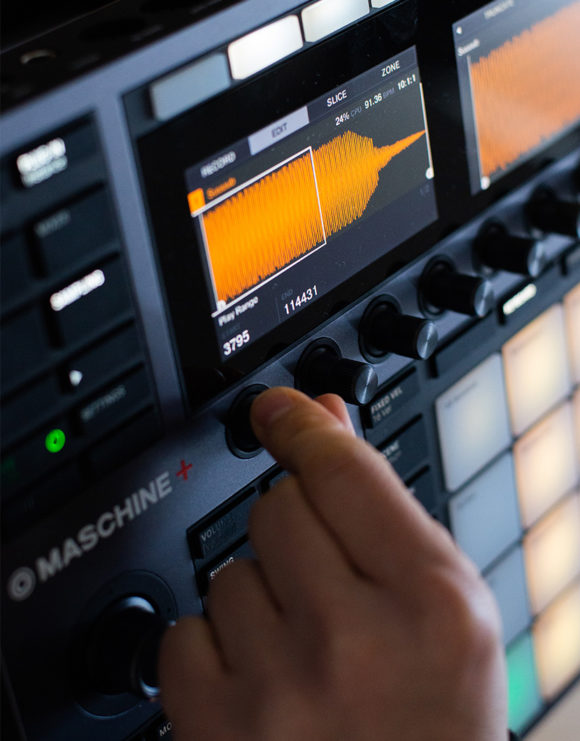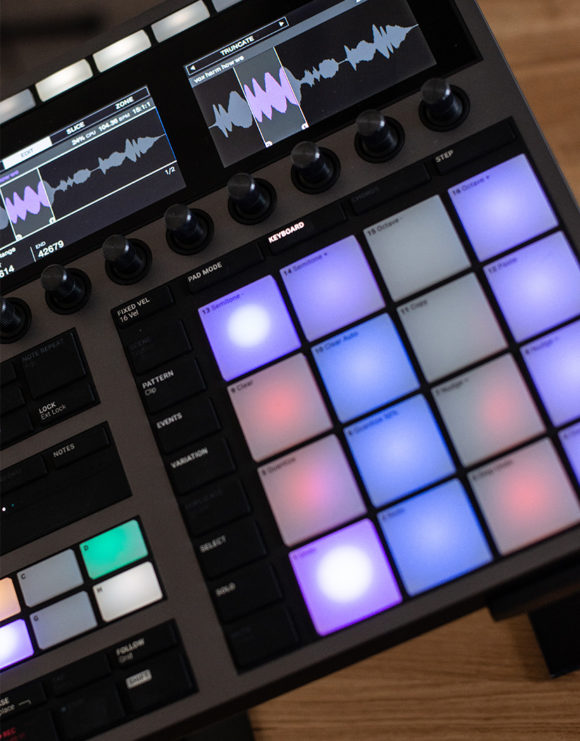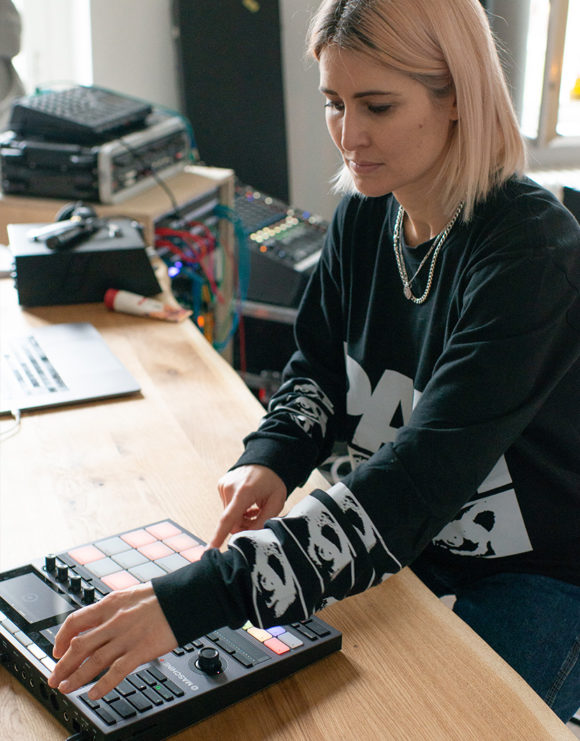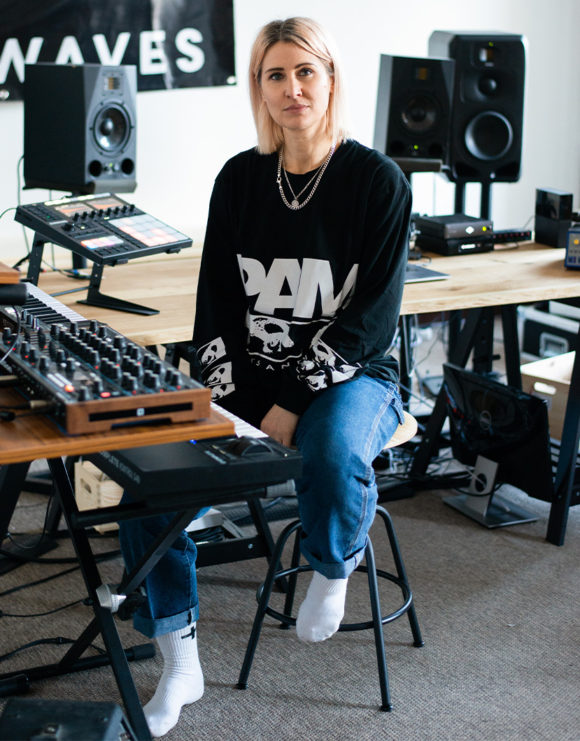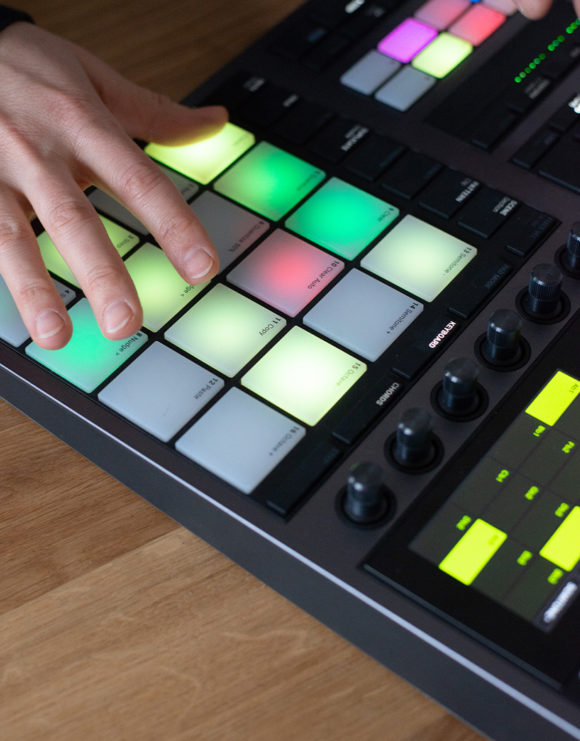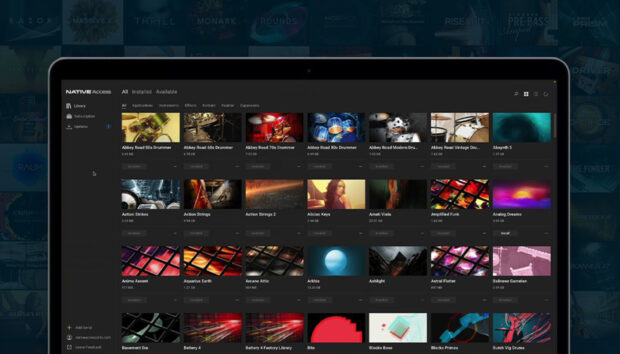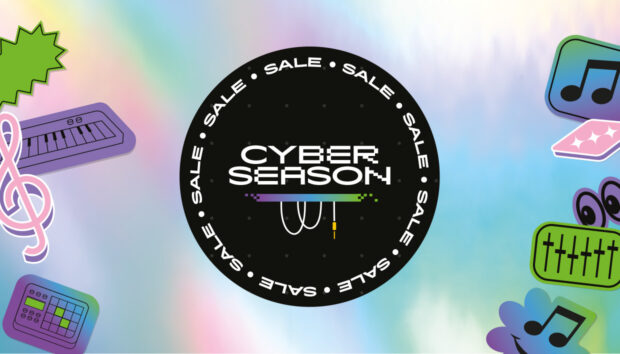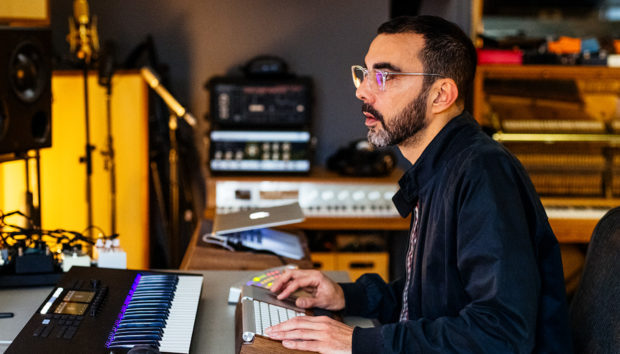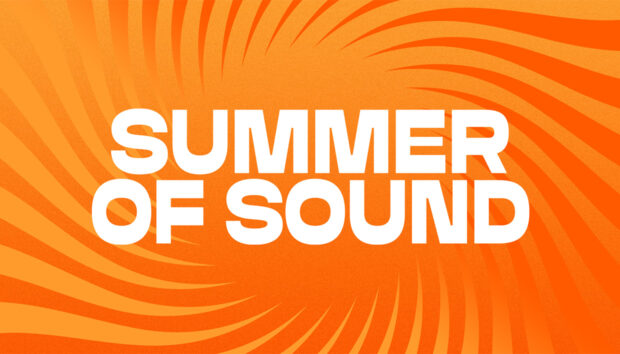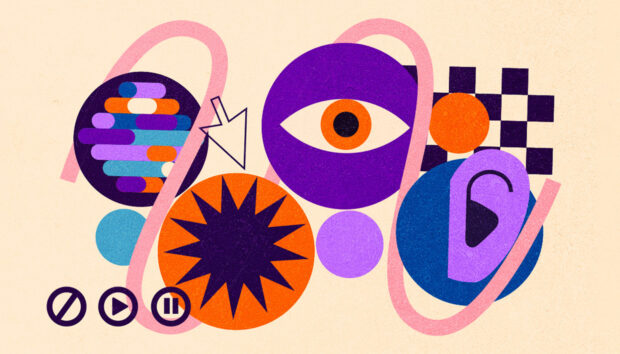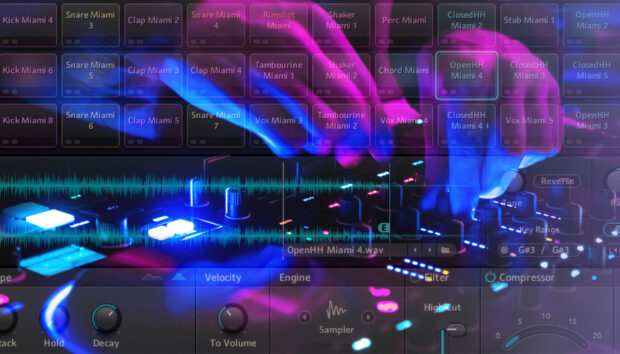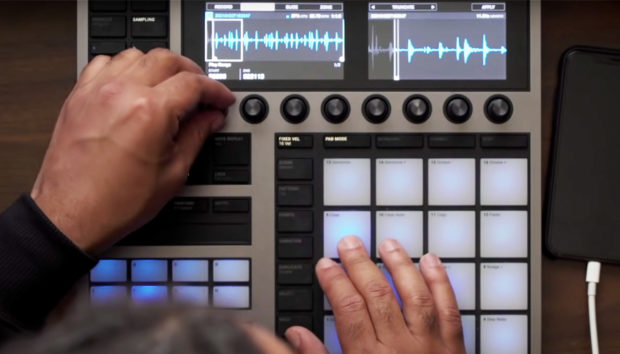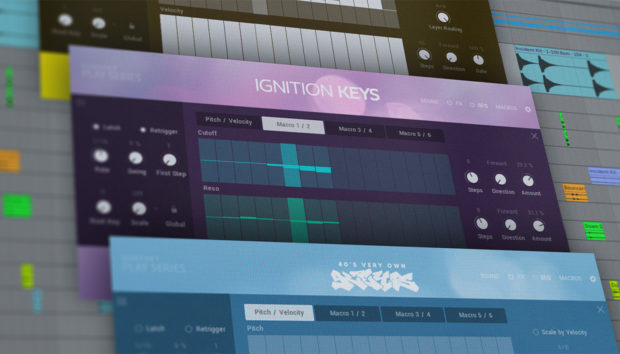Berlin-based polymath Jane Arnison is a force to be reckoned with. The Australian-born musician made her name as a mixing engineer and producer, but she’s also one half of the pop duo Evvol with her partner, Julie, and the mastermind behind Pathwaves: a yearly, one-week-long studio production and engineering intensive for women and non-binary people.
Arnison designed the program with the specific objective of strengthening the knowledge-sharing networks and resources available to non-cis white men. And while COVID-19 has hindered her ability to teach some hardware-based skills, she’s found creative workarounds to keep Pathwaves going amid the pandemic’s limitations.
We caught up with the artist and music entrepreneur to chat about her vision for Pathwaves’ future, the discipline needed to continue her solo work, and the free sample pack she’s kindly put together featuring drum hits, loops, and melodic one-shots submitted by her masterclass students.
Check out the video below to see Jane getting to grips with the new MASCHINE+ hardware and having a jam with sounds from the pack, then download them for yourself and put them to use in your own productions.
Could you walk us through the performance and tell us about some of the samples you used?
I set up five different layers beforehand, to give me a palette of sounds to work with: There’s a sub-bass sound that I got from Enrica Falconi; some really awesome bass and crunchy live drums that Miche Moreno recorded; some really cool vocal samples from an artist called Pilgrim; and some nice synthy stuff from other participants.
I started off by setting up the bassline which is the foundation for the loop, then built everything on top of that. I brought in the drums, and also had the Perform FX on those – a high-pass filter that you can hear me playing around with. I then did some improv with the vocal sample and added some synth stabs that I processed with a luscious built-in reverb and let them sort-of fly around in that wetness. There were also Perform FX on those that I automated live and recorded into the loop. All the individual loops are different lengths to make sure the whole thing doesn’t feel too blocky. Once I had that bed pretty much set, I just jammed out a melody using a synth sound from the pack and added some note-repeat on the snare.
How did you break into this field? What has your professional trajectory been like?
I started a long time ago now. I went to the Conservatory of Music in Sydney and studied classical composition. When I finished my degree, I was really sick of classical music’s restrictions and snobbery, so I got an internship at a big commercial studio in Australia. That was when I really learned engineering and production with pop music and rock and indie and electronic.
There were lots and lots of challenges along the way with regards to gender, of course. That’s one of the main reasons why I left Australia, actually. There were some challenges in one of my workplaces. And I just kind of burnt out. It was a really destructive environment. It almost made me give up.
Have you faced less resistance and discrimination in Berlin?
I have felt very supported in Berlin. I’ve had a great time in terms of being respected for my capacities and abilities. There certainly have been some issues. Structural inequality is always there. But by the time I started to connect professionally in Berlin, I was very sure of who I was, and I had really toughened up and I wasn’t taking shit from anyone, so it enabled me to be able to push through the bullshit.
How would you characterize the specific kinds of gender-based discrimination that exist in this part of the music industry?
It’s very multifaceted. The kind of discrimination I currently still face is that if you’re a boss and a woman, you’re a nag or a bitch. With kids, like people that I’m teaching, the problem is they’re not given space. Young male producers don’t give space for the voices and the ideas of their female or non-cis counterparts. I get a lot of feedback from people who don’t feel they have the confidence to talk or speak their opinion, and who feel they aren’t being listened to.
How and when did you begin conceptualizing the Pathwaves program? Did you always have it in mind to cater to women and non-binary people specifically?
Initially it was an experiment, and then it just became really clear to me that it’s something that is needed and wanted. In the first iteration, we had the applications up for a week, and there were, like, 150 applications or something for 10 places. I was just like, “Whoa, okay. Everyone wants this to happen, so someone needs to do it.” It’s been happening for one week, once a year since November 2019, so the next will happen in November 2021. But I kind of want to restructure things and think about what I can do in the meantime.
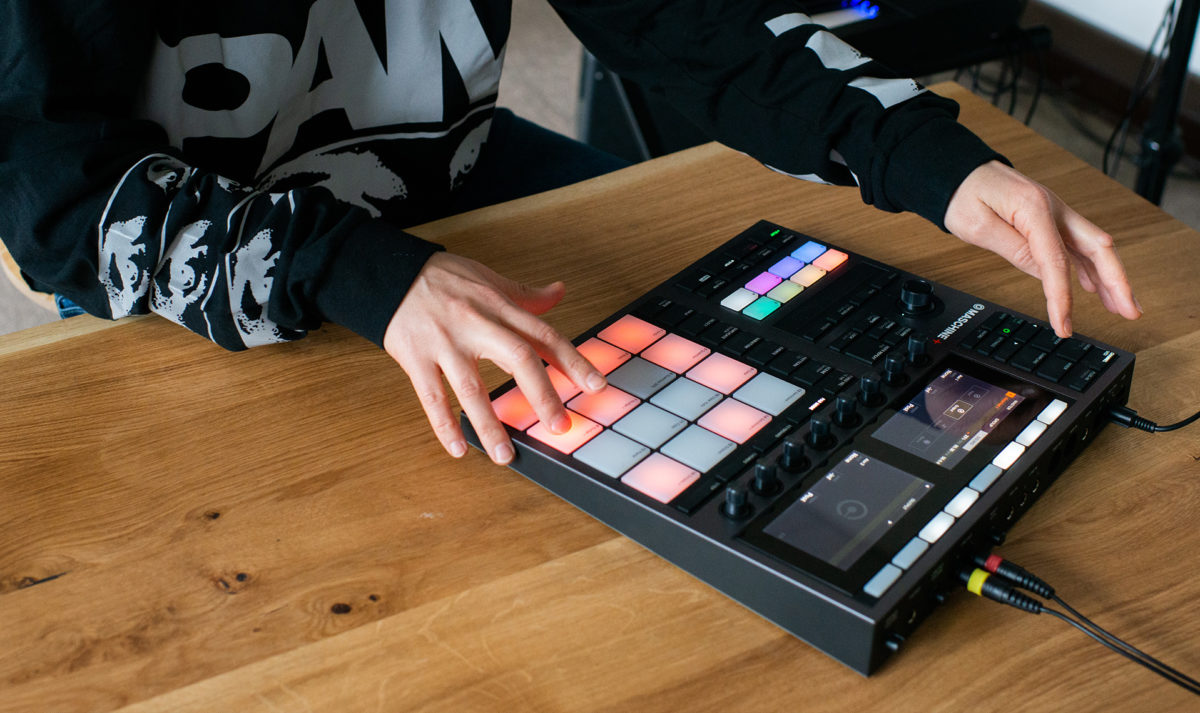
I know you teach a lot of hard technical skills, but do you teach soft skills as well? Like how to navigate the industry or land a position?
In the first iteration we did. We had a networking event and a panel. And the idea was to foster the idea of community and discussion. But I realized very quickly that there wasn’t much we could do in one week. The most important thing is that we need to get people feeling like bosses in studios: really confident, and really having that skill set so they can be like, “Okay, let’s go network, let’s get business.” But the skill needs to come first. So that’s what I prioritize.
It seems like a huge obstacle to learning this profession, though, is that it isn’t easy to teach yourself. It’s not like being a bedroom producer. You have to have access to really expensive equipment and a studio, where people who have had more formal training have a better chance of getting in before you.
That’s a really, really big point. You have to be able to go there to press all the buttons. It’s not even that hard, necessarily, but it’s about access, as you say. That’s why I really want to try and set up a studio that is all-year-round, that has cheap access, and that prioritizes female, non-binary, and non-white participants from diverse backgrounds. It’s a really little seed of an idea, but that’s my next goal.
Do you feel like you’ve been able to translate the curriculum to an online setting?
It’s not ideal, but yes, to a certain extent. One of the great benefits of teaching this stuff in 2021 is that it’s all being emulated into amazing, high quality plugins that give you an experience that’s almost like real life. So I think there’s a lot that you can do in terms of understanding the foundations. And then when you come into the studio, you get that final, very important physicality.
You oversee Pathwaves, you do your own composition and production work, and have a band, Evvol. How are you managing your time between these pursuits? Do they inform each other?
It’s definitely difficult. It’s something I’m kind of trying to work on. I’m a bit greedy—I have a thirst to do lots of different things. And I really am passionate about it all. But as you said, they do inform each other, 100%. It’s all related eventually.
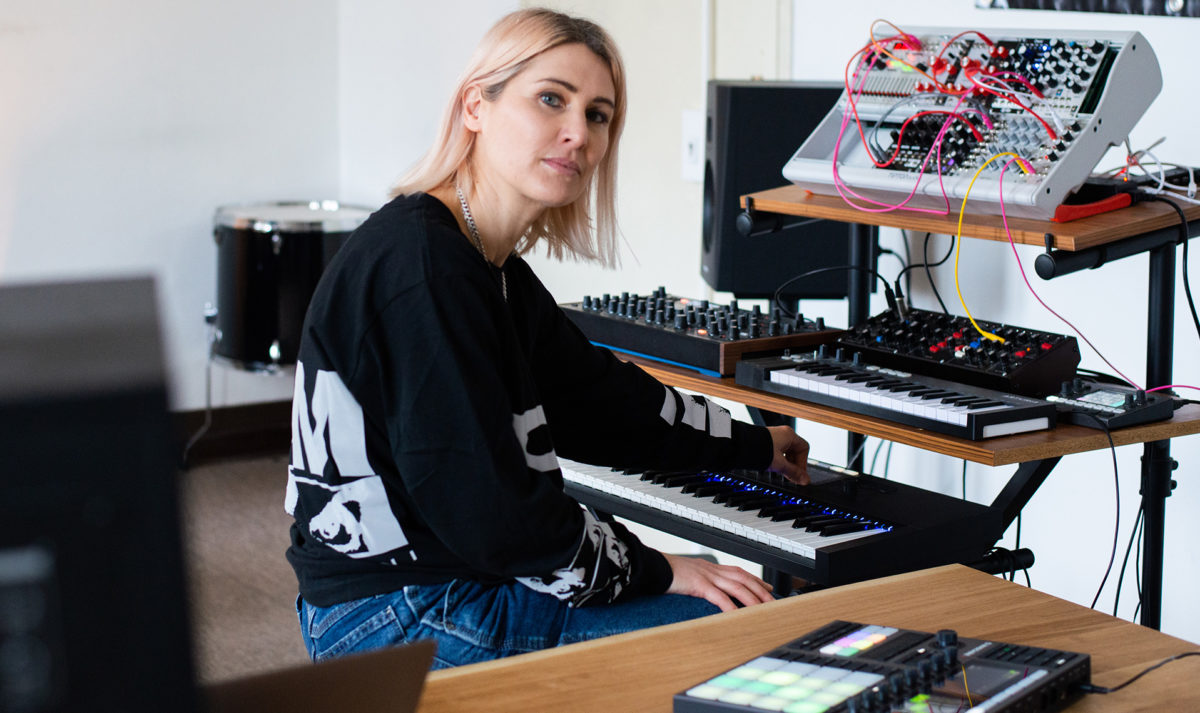
Does your process producing, mixing, and engineering across different styles require different skill sets?
That’s a really interesting question. I’ve been thinking a lot about that recently. The short answer is that it’s different. For a long time, the way I was approaching mixing was from a really commercial mindset. I was thinking in terms of a sonic template; to get a pop song or a dance track for Berghain to the industry standard, it has to go through a sound template 90% of the time. But more recently, as I’ve gone back into doing experimental, electronic, and ambient sound art-y stuff, the lines have become very blurry, because once you’re in a more experimental environment you can start to make up more of your own rules.
How often do you work on original compositions, and what is your workflow like when you do?
It really depends on what I’m doing. But it’s mostly about just hitting record and closing the doors and windows and lights and just, like, letting it out. Music for me is increasingly a very important therapeutic event. It’s really a way for me to understand myself, understand the world, make sense of things, and live to fight another day. I need to give myself space to express myself.
Even just finding that time and space must be difficult, though.
Yeah, the struggle is real. I try now to have Monday through Wednesday be my time for work and teaching and doing things for other people, and then Thursdays and Fridays are my two days in the studio. It requires discipline, and it requires saying ‘no.’
What tips and pieces of advice would you give to people trying to pursue an already-saturated industry in a competitive city?
Knowing your craft and being confident is really important. And you get that through working, and through getting up everyday and making music and exploring sound. And doing that for the love and the passion that you have for that process. So many young people these days are aware of the need to monetize their skills, and so they’re doing that before they’ve got anything interesting to say or to offer. And I think that’s really counteractive. Take your time, learn, find your voice, get skills, and be a boss. And then just be bold, back yourself, and find a community so that you’re not yelling into the wind. Work with friends to build up your portfolio. Create the future together. Rather than trying to fight into some industry that won’t let you win, fuck it. Make your own. That’s what I think. I think it’s really possible.
Learn more about the Pathwaves project at pathwaves.de.
Photos: Kasia Zacharko
Video: Carys Huws
Sample pack contributors: Miche Moreno, Amanda Merdzen: live bass and drums; Ashlee Luk electronic drums; Enrica Falconi: synths and keys; Pilgrim: vocals.








